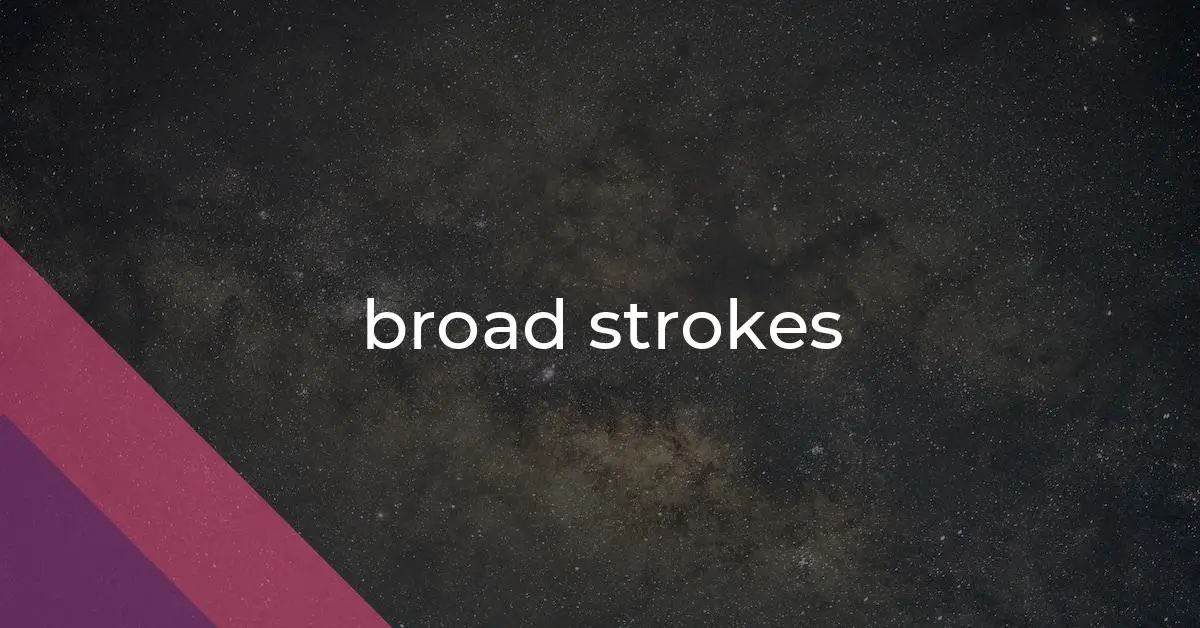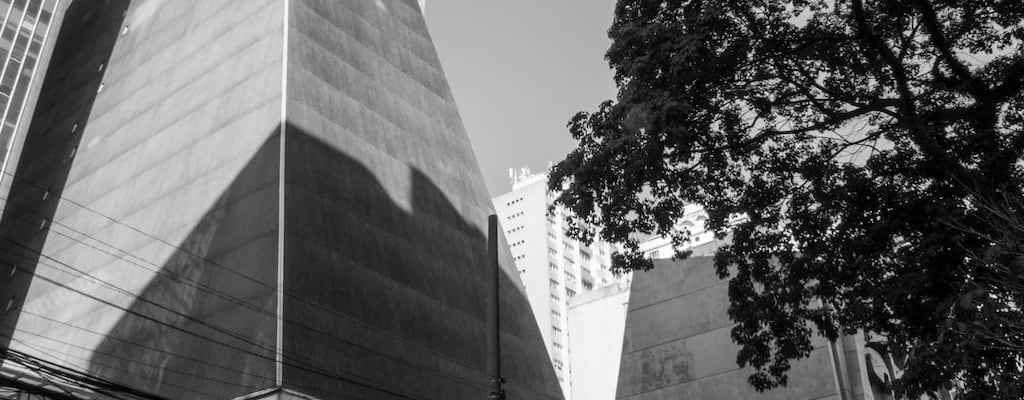broad strokes: Idiom Meaning and Origin
What does ‘broad strokes’ mean?
The idiom "broad strokes" refers to a general or overall approach to something, without focusing on specific details. It implies a broad and sweeping perspective rather than a specific or detailed analysis.

Idiom Explorer
The idiom "grand scheme" refers to the overall plan or strategy that encompasses all the smaller details and actions. It emphasizes the larger perspective and long-term goals rather than focusing on individual parts or immediate results.
The idiom "get the drift" means to understand the general idea or meaning of something, even if it is not explicitly stated or explained.
"From soup to nuts" is an idiom used to describe a comprehensive or complete range of things or activities, covering everything from the beginning to the end.
The idiom "draw the long bow" means to exaggerate or stretch the truth excessively. It is often used to describe someone who tells implausible or unbelievable stories.
The idiom *draw a long bow* means to exaggerate or stretch the truth, often to make a story or claim more impressive or exciting.
The idiom "cut swathes" means to have a powerful and significant impact or influence on something or someone.
The idiom "cut a wide swath" means to have a significant influence or impact. It is often used to describe someone who stands out or makes a strong impression in a particular situation.
The idiom "cut a swath" means to make a quick and significant impact or impression, usually by taking bold or forceful actions.
Unraveling the Essence
Broad strokes is a commonly used idiom that refers to a general and basic outline of something without going into specific details. It is often used to describe a broad, overall view or approach to a subject or situation. The term "broad strokes" is derived from the art world, where it is used to describe the large, sweeping brushstrokes that are used to lay down the foundation of a painting before adding finer details.
The idiom "broad strokes" can be traced back to the late 19th century. Its first known usage was in an article titled "Illustrated Police News" published in 1884. The phrase gained popularity in the early 20th century and has since become a well-known and frequently used idiom in everyday conversation.
The figurative meaning of "broad strokes" is to simplify or summarize a complex idea or situation. When someone talks about something in broad strokes, they are providing a general overview without getting into the specifics. It is often used to give an outline or a general understanding of a topic, rather than delving into the details.
The idiom "broad strokes" is versatile and can be applied to different fields, such as art, literature, business, and politics. In art, it refers to the initial rough sketch or the basic structure of a painting before adding finer details. In literature, it can describe a writer's approach of giving a general overview of a character or a scene without providing too many specific details. In business, it can refer to a general plan or strategy without getting into the specifics. And in politics, it can be used to describe a political candidate's broad policy goals without getting into specific legislation or details of implementation.
One related idiom that is often used in conjunction with "broad strokes" is the "big picture". When someone talks about the big picture, they are referring to the overall view or perspective of a situation or topic. It is similar to talking about something in broad strokes, as both phrases emphasize the general overview rather than specific details. The big picture is often used in business or strategic contexts to discuss the broader goals or objectives of an organization or project.
Another related idiom is the "grand scheme". When someone talks about the grand scheme, they are referring to the overall plan or strategy behind something, often on a larger or more abstract scale. The grand scheme is similar to the big picture and broad strokes in that it focuses on the general overview and larger goals, rather than specific details or implementation. This idiom is often used when discussing long-term plans or overarching strategies.
A third related idiom is "cut a wide swath". This phrase is often used to describe someone who has a significant impact or influence in a particular area. When someone cuts a wide swath, they are making a broad and noticeable mark or impression. This idiom is similar to the concept of using broad strokes, as both phrases emphasize a broad and impactful approach to a situation or topic.
The idiom "broad strokes" is often used in a positive and effective manner. It allows individuals to communicate complex ideas in a simplified way, making them easier to understand and grasp. However, it is important to note that using "broad strokes" can also be a double-edged sword. While it provides a simplified overview, it runs the risk of oversimplifying complex issues and missing important details. It can also lead to a lack of nuance and depth in understanding a subject.
The idiom "broad strokes" is widely used in English language to describe a general and basic overview of something without going into specific details. It originated from the art world and has become a well-known idiom in everyday conversation. The idiom is versatile and can be applied to various fields. While it allows for simplified communication, it also comes with the risk of oversimplification and lack of nuance. The idiom "broad strokes" offers a valuable tool for expressing a general understanding of a subject, while also leaving room for further exploration and deeper analysis.
Example usage
Examples of the idiom "broad strokes" used in a sentence:
- In her presentation, she explained the project in broad strokes, giving an overview of the main objectives and outcomes.
- The museum curator provided a broad-strokes history of the ancient civilization, highlighting key events and cultural aspects.
- The team leader discussed the broad strokes of the new marketing campaign, emphasizing the target audience and messaging strategy.
More "Painting" idioms
We missed the mark - nothing found.



